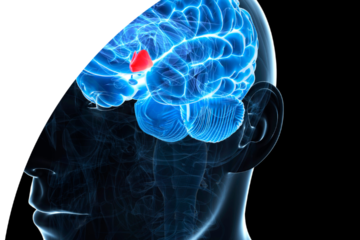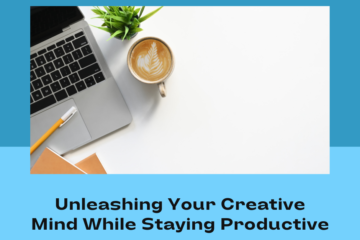A Joyful Day Every Day

An old saying says, “Every morning, you have two options: sleep with your dreams or get up and go after them.” Living a happy life is a lot the same, and it’s a choice we can make. But how can we make sure our days are full of joy, happiness, and satisfaction? Welcome to our complete guide to making every day a happy one.
Embrace Positivity
To be positive, you have to train your mind to focus on the good things in life. It’s about learning to see opportunities instead of problems, to look for answers instead of dwelling on problems, and to see ourselves and others in a good light.
Self-talk, or the conversations we have with ourselves throughout the day, is often the key to being happy. This conversation can either help or hurt each other. Negative self-talk can drain your energy and slow you down, while positive affirmations or helpful self-talk can be empowering and get you going.
Positive Affirmations
It’s a good idea to start your day with happy affirmations. A simple sentence that says something is true is a declaration. For example, affirmations like “I am capable,” “I can handle whatever comes my way,” and “I’m grateful for the opportunities that lie ahead” all help you feel better about yourself and your life.
When you say these mantras, you are basically telling your mind to believe them. As you say these mantras over and over again, they start to shape your thoughts, attitudes, and even actions in your subconscious mind.
Overcoming Negative Thoughts
Also, you should learn how to deal with bad thoughts when they come up. Everyone has times of doubt, worry, or anxiety, but the important thing is not to think about them too much. Instead, when you have a negative thought, recognize it without judging it and then choose a positive statement to replace it with.
For example, if you think, “I can’t do this,” stop and reframe it as, “This may be hard, but I have the skills and resources to get through it.” This not only stops the negative thought, but also gives you the strength to handle the situation better.
The Impact of Positivity
Choosing to be positive can change your day in many ways. It can improve your health, make you stronger, and even help you get more done. A positive outlook helps you deal with stress better, approach jobs with more enthusiasm, and get along better with other people. When you look at life through a positive lens, you’re more likely to notice and take advantage of new possibilities.
Accepting positivity doesn’t mean rejecting that life has problems or is hard. It’s about making the choice to stay hopeful and positive even when bad things happen. It’s about having faith that you can handle anything that comes your way and keeping a happy attitude while doing so.
Remember that being positive is not a one-time decision, but a habit that you need to work on every day. The more you practice being positive, the easier it will become and the more joy it will bring you in your everyday life.
Nurture Your Body
The link between the mind and the body is a strong one. How you feel mentally can depend a lot on how healthy you are. When your body doesn’t feel good, it can make you feel uncomfortable, angry, or even sad. On the other hand, taking care of your body can improve your mood, give you more energy, and make you feel better generally.
Balanced Diet
To keep your body healthy, you need to eat a varied diet. What you eat has a direct effect on how your brain looks, works, and, in the end, how you feel.
If you eat a lot of fruits, veggies, lean proteins, healthy fats, and whole grains, your body and brain will get the nutrients they need to work at their best. Some of these are important fatty acids, which are good for brain health, antioxidants, which can reduce inflammation and oxidative stress, and vitamins and minerals, which the brain needs to work well.
On the other hand, eating a lot of processed foods, sugary drinks, and bad fats can make mood swings worse, lower energy, and make it hard to focus.
Regular Exercise
Getting regular exercise is another important part of taking care of your body. Endorphins are natural painkillers and mood boosters that are made in the brain when you exercise. Because of this, people often talk about the “runner’s high.”
Exercise can also help you sleep better, feel better about yourself, feel less stressed, and think more clearly. Find an exercise you like, like a daily walk, yoga, cycling, or lifting weights, and make it a part of your habit.
Quality Sleep
Getting enough quality sleep is also important for taking care of your body. While you sleep, your body works to help your brain work well and keep your body healthy. If you don’t get enough or good sleep, your mood can change, you might have trouble remembering things, and your brain won’t work as well.
The National Sleep Foundation says that you should try to sleep between 7 and 9 hours each night. Set up a regular sleep plan, make your bedroom a relaxing place to be, and do calming things before bed to improve the quality of your sleep.
Remember that taking care of your body isn’t just about staying healthy. It’s about setting conditions for your body to thrive and for your emotional well-being to be supported. When your body is healthy and you have a lot of energy, you are better able to find joy and good things in your daily life.
Practice Mindfulness
Mindfulness is a state of mind that can be reached by keeping your attention on the present moment while calmly noticing and accepting your feelings, thoughts, and bodily experiences. It’s a practice that’s often linked to meditation, but it can also be used in normal life.
Staying Present
Mindfulness is all about being in the moment. That means you should pay attention to what you’re feeling right now, without judging it. We spend too much time thinking about the past or worrying about the future, and as a result, we miss out on what’s going on right in front of us.
Mindfulness pushes you to give your full attention to what you’re doing right now. Pay attention to how your food tastes, feels, and smells when you eat. When you walk, pay attention to how your feet feel when they hit the ground. You’ll enjoy these daily things more if you do this.
Managing Emotions
Mindfulness also means being aware of and accepting your thoughts without making any judgments about them. This doesn’t mean pushing down bad feelings. Instead, it means accepting them, letting them be, and letting them go away on their own.
For example, if you’re worried about a talk you have to give, don’t try to get rid of that feeling. Instead, accept it. Say to yourself, “This presentation is making me feel stressed.” This simple act of acknowledgment can often make the feeling less strong and stop it from taking over.
Benefits of Mindfulness
Mindfulness has a lot of positive effects. It can help you feel less stressed, concentrate better, be more flexible emotionally, and feel better generally. Also, it can help you feel happier and more happy in your everyday life.
Being aware helps you enjoy the good things in your life more, and it can also help you deal with the bad things better. By focusing on the here and now, you can keep yourself from getting caught up in regrets about the past or worries about the future.
Using mindfulness in your daily life
Mindfulness doesn’t have to be hard to work into your day. Here are some easy ways to get started:
Mindful Breathing:
Spend a few minutes every day paying attention to your breath. Notice how air comes into and goes out of your body. When your thought wanders, bring it back to your breath in a gentle way.
Mindful Eating:
Instead of eating in front of the TV or computer, eat without distractions and focus on the experience of eating.
Mindful Walking:
When you walk, pay attention to how the ground feels under your feet, how the wind feels on your skin, and what sounds are around you.
Don’t forget that being mindful is a habit. It’s not about reaching a state of peace that lasts forever. Instead, it’s about training your mind to be present and interested in the here and now. Being in the present moment and being okay with it set the stage for a happier, more rewarding life.
Connect with Others

As humans, we are naturally social beings. Our relationships and interactions with other people are a big part of how happy and healthy we feel generally.
Building strong, good relationships can give us a support system, a sense of shared happiness, and a sense of belonging. These connections can be as close as family and friends or as far-reaching as neighborhood and social groups.
Ways to strengthen these connections are to have meaningful conversations, share stories, and show empathy and understanding. These exchanges can lead to happy feelings like joy, love, and contentment, which are important for a happy day.
When it comes to social relations, it’s important to remember that quality usually beats quantity. Having a few close, deep relationships can be more satisfying and helpful than having a lot of shallow ones.
Cultivate Gratitude
Gratitude is the act of noticing and being thankful for the good things in our lives. This could mean enjoying a beautiful sunrise, saying thanks for a kind act, or noticing how much you’ve grown after going through something hard.
Practicing thanks has been linked to many benefits, such as being happier, less depressed, and sleeping better. By focusing on what’s going well in our lives, we can take our minds off of our problems and worries, which can make us feel happier and more satisfied overall.
Keeping a gratitude book is a useful way to learn to be more grateful. This means writing down every day what you’re thankful for. Over time, this practice can rewire your brain to make it easier for you to focus on the good things in your life, which can make you happier and more satisfied.
Invest in Your Passions
Passions are things you really like to do, are interested in, or care a lot about. Depending on what you like, this could be anything from drawing to playing an instrument to hiking to reading to cooking to coding.
Doing these things can give you a sense of meaning and make you happy. They let us get into a “flow” state, in which we are so focused on the job at hand that we lose track of time. This is a happy and fulfilling state.
Spending time on your passions can also give you a sense of mastery and accomplishment, which can boost your self-esteem and general health.
Remember that the most important thing is to do things you really enjoy, not things you think you should like based on social standards or expectations. Give yourself some time every day to do these things, and you’ll likely find more joy and satisfaction in your everyday life over time.
Conclusion:
Don’t forget that having a happy day isn’t about not having problems, but about being able to deal with them. There will always be ups and downs in life, but if you use these strategies, you’ll be able to handle them with a positive attitude. This will bring you one step closer to having a happy day every day. So, use this help, make these things a part of your daily life, and watch as your days become a series of happy events.



0 Comments